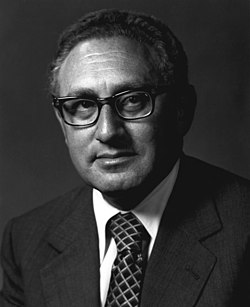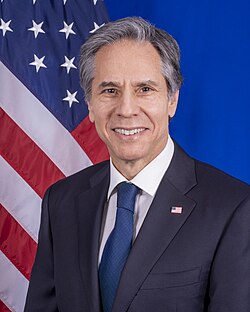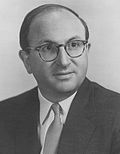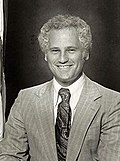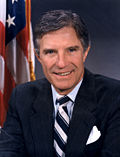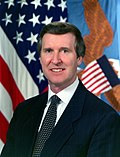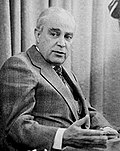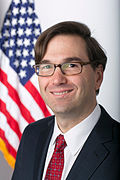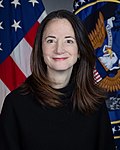| This article is part of a series on the |
| Politics of the United States |
|---|
 |
The Cabinet of the United States, which is the principal advisory body to the President of the United States, has had 47 Jewish American members altogether. Of that number, 27 different Jewish American individuals held a total of 27 permanent cabinet posts, having served as the heads of the federal executive departments; 20 different Jewish Americans have held 21 cabinet-level positions, which can differ under each president; and four officeholders served in both cabinet and cabinet-rank roles.
Contents
The first Jewish cabinet member was Oscar Straus, appointed Secretary of Commerce and Labor by President Theodore Roosevelt. The first Jewish woman to serve as cabinet member was Penny Pritzker who served as Secretary of Commerce under President Barack Obama. The greatest number of Jewish cabinet members appointed by a president is six by President Bill Clinton, followed by four each by Presidents Jimmy Carter and Joe Biden.
The highest ranking Jewish cabinet members are Henry Kissinger and Antony Blinken, both of whom served a Secretary of State. Before that, the highest ranking Jewish cabinet member was Henry Morgenthau Jr., who served as United States Secretary of the Treasury, but he was higher ranking in the line of succession. Janet Yellen, who served as Treasury Secretary, is the highest ranking Jewish woman to hold a cabinet post. Two Jewish cabinet secretaries were immigrants to the United States: Kissinger, Secretary of State under Presidents Richard Nixon and Gerald Ford, and W. Michael Blumenthal, Secretary of the Treasury under President Jimmy Carter.
The United States Department of the Treasury has had the greatest number of Jewish appointees, with seven. The United States Department of Commerce has had four. The United States Department of Justice has had three. The Departments of State, Defense, Labor, Health, Education, and Welfare, [a] and Homeland Security each have had two. The Departments of Agriculture, Transportation, Veterans Affairs, and Commerce and Labour (now defunct) [b] have had one each. The Departments of Energy, Education, Housing and Urban Development, and the Interior have had none.
The totals for this list include only Jewish American presidential appointees confirmed (if necessary) by the U.S. Senate to cabinet or cabinet-level positions and taking their oath of office; they do not include acting officials or nominees awaiting confirmation.
